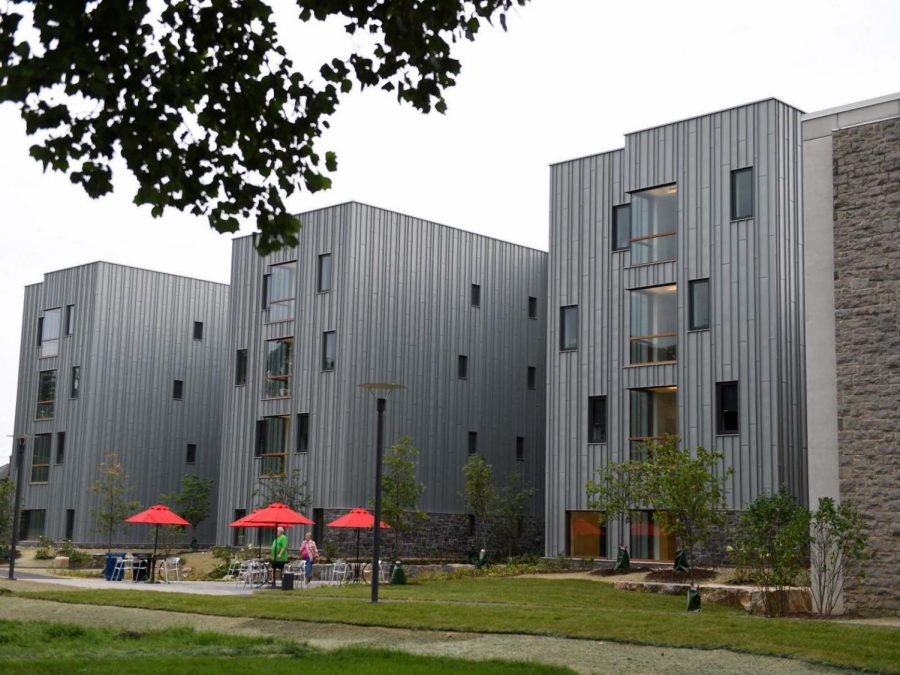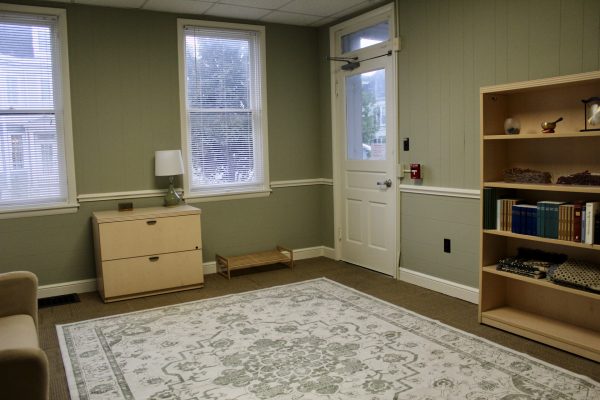As Campus Reopens, Students Brace for Another Unconventional Semester
As Dickinson begins its phased reopening for the spring semester, some students brace for an unusual semester on campus, while others are already experiencing it.
After the first phase of student move-in on Jan. 20 through the 24, 507 students have now been on campus for the first two weeks of classes. 478 more students will move onto campus this weekend, from Feb. 5-7. According to George Stroud, vice president and dean of student life, about 1,100 students will be living on campus at one point throughout the spring semester.
Angie Harris, associate vice president of student life, says that there will be 517 students participating remotely for the entire spring semester, while 808 students will be living on campus for the full semester. There are 278 students in the cohort that return for just the first half of the semester, and subsequently 334 students in the cohort moving to Dickinson for the last half of the semester. 28 students will be commuting.
All students moving onto campus this semester are required to complete a stay-at-home period of seven days upon getting to campus. During this time, students are permitted to go outside, pick up food from the grab-and-go eatery on campus, pick up mail, and pick up books. Apart from these activities, students are largely encouraged to stay at home with other members of their pod.
Dickinson has also committed to testing all students living on campus twice a week this semester. Students sign up for their weekly testing time slots for the semester upon arrival. However, due to a snowstorm that left about nine inches of snow in Cumberland County from Sunday into Monday, many students on campus received “incomplete” COVID test results from their previous Friday tests. The snow also forced the college to cancel all COVID testing on Monday, instead asking all students to come in the following day.
Stroud said that due to the snowstorm, tests were unable to be shipped to their processing facility in Cambridge, Ma. Tests must be received within about 24 to 36 hours after they are taken to receive accurate results. To ensure Tuesday’s tests were processed on time, the college hired a driver to transport the tests to the Massachusetts facility instead of shipping them. President Ensigh said that the college plans to use this method of transportation with any other circumstances that could prevent timely COVID test processing this semester.
Despite this early hiccup, Ensign is confident in Dickinson’s ability to test frequently and consistently.
“We are testing twice a week…we could test everyday, literally,” said Ensign. The college president is also impressed with the school’s ability to adapt with unexpected circumstances, like the evacuation of pods from Drayer and Adams hall this week when a sewer became blocked.
In a meeting with The Dickinsonian, Ensign also emphasized that testing is only one portion of Dickinson’s protection against COVID-19 alongside wearing masks, social distancing, and filling out the daily symptom tracker.
Students, meanwhile, are looking at the semester ahead with optimism and caution.
Josie Cook ‘23 says she will be staying on campus for the first half of the semester, which is the half designated for first-years and sophomores. Cook says that while she is disappointed by the school’s decision, she understands the basis behind it. She explained that she will be sharing a pod with a group of close friends but says that “I’m disappointed about not being able to really meet and hang out with new people.”
Productivity while on campus and being isolated is a concern for Cook, who added that by “spending a lot more time in my dorm and in my building than I would be normally… is going to negatively affect my productivity.”
Nadia Shabaz Diaz ‘21, will be returning to campus for the full spring 2021 semester. Shabaz Diaz says she is lucky to live close to campus, but is “personally disappointed,” about the school’s decision to split up the semester. She noted that since most people were unable to come back in the fall, the school tried to make this semester fair, but Shahab Diaz said thinks there were more equitable options that should have been considered. “I don’t think that makes it the most logical or effective [plan for the spring semester],” she said.
In addition she “can’t imagine the time, money, and effort that students on the other side of the country or from other parts of the world will need to move back for just half a semester.” Because of these financial hardships, many students made the decision not to come to campus.
Shahab Diaz feels as though many seniors were not prioritized in the school’s plans for the spring. “I think even more importantly, it’s the last opportunity to fully take advantage of research opportunities, job and career resources, and faculty relations,” Shahab Diaz said. However, she is eager to see how the first half of the semester goes with containing the virus.
“I’m looking forward to seeing how the first half of the semester pans out in terms of frequent testing and social distancing measures, and how the pods play a role in effectively curbing contagion,” said Shahab Diaz.
Harris added that the current numbers for students returning to campus for the second half of the semester are subject to change because those arriving for the later half of the semester still have time to change their plans.





Sarah J • Feb 4, 2021 at 10:35 pm
Let’ go RED DEVILS!!!!
We’re back!